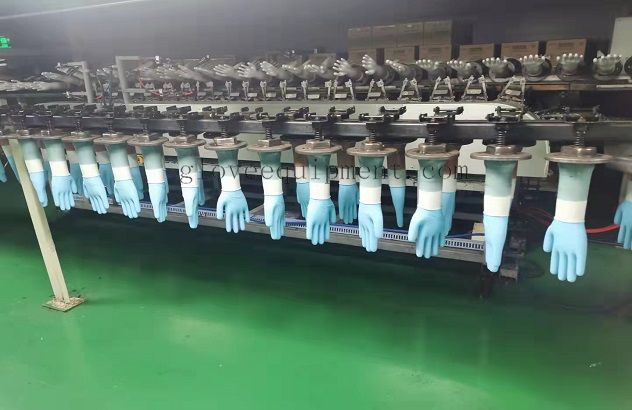Nitrile gloves are a type of disposable gloves made from synthetic rubber called nitrile. They are widely used in various industries, including healthcare, food handling, chemical processing, and more. The manufacturing process of nitrile gloves involves several steps to ensure their quality and functionality. Here's an overview of the typical manufacturing process:
Step 1: Acquiring Raw Materials
The first step is to acquire the raw materials needed for nitrile glove production. The primary materials include nitrile rubber, which is a synthetic copolymer of acrylonitrile and butadiene. Other materials required are additives like accelerators, sulfur, and pigments for color.
Step 2: Compounding the Nitrile Rubber
In this step, the nitrile rubber is mixed with the additives in a process called compounding. The mixture is then heated and processed to create a uniform blend of the raw materials. The compounding step is crucial for achieving the desired properties and characteristics of the final gloves, such as flexibility, strength, and chemical resistance.
Step 3: Dipping and Forming
The compounding is then converted into a liquid form and used to coat glove molds. The glove molds are usually made of ceramic or aluminum, and they have the shape and size of the desired gloves. The molds are dipped into the liquid nitrile mixture, and a thin layer of the liquid adheres to the mold's surface.

Step 4: Vulcanization
After dipping, the gloves are then sent through a vulcanization process. Vulcanization involves subjecting the gloves to high heat, typically in an oven, to initiate the chemical cross-linking of the nitrile molecules. This cross-linking process strengthens the material, making it durable and enhancing its resistance to chemicals.
Step 5: Stripping
Once the gloves are vulcanized and the nitrile material has fully set, they are removed from the molds. This process is called stripping. The gloves are carefully removed from the molds without damaging their shape or integrity.
Step 6: Quality Control and Testing
Before packaging and distribution, the gloves undergo rigorous quality control and testing. This includes checking for defects, thickness consistency, tensile strength, and barrier properties. The gloves are also tested for leaks and pinholes to ensure they meet the required quality standards.
Step 7: Packaging and Distribution
The final step involves packaging the gloves for distribution. They are usually packaged in boxes of various quantities, depending on the intended use and market demand. The packaged gloves are then distributed to various industries and sectors that require disposable nitrile gloves for their specific applications.
Conclusion:
The manufacturing process of nitrile gloves involves compounding nitrile rubber with additives, dipping glove molds, vulcanizing the gloves, and then carefully stripping them from the molds. The gloves undergo thorough quality control and testing before they are packaged and distributed to various industries. Nitrile gloves offer excellent durability, chemical resistance, and barrier protection, making them a popular choice in numerous sectors, especially in healthcare and industries that prioritize safety and hygiene.
Feangwang is an all-around gloves equipment supplier integrating design, installation, and research and development. Specializing in the production of Nitrile Gloves Production Line.





Comments
All Comments ( 0 )